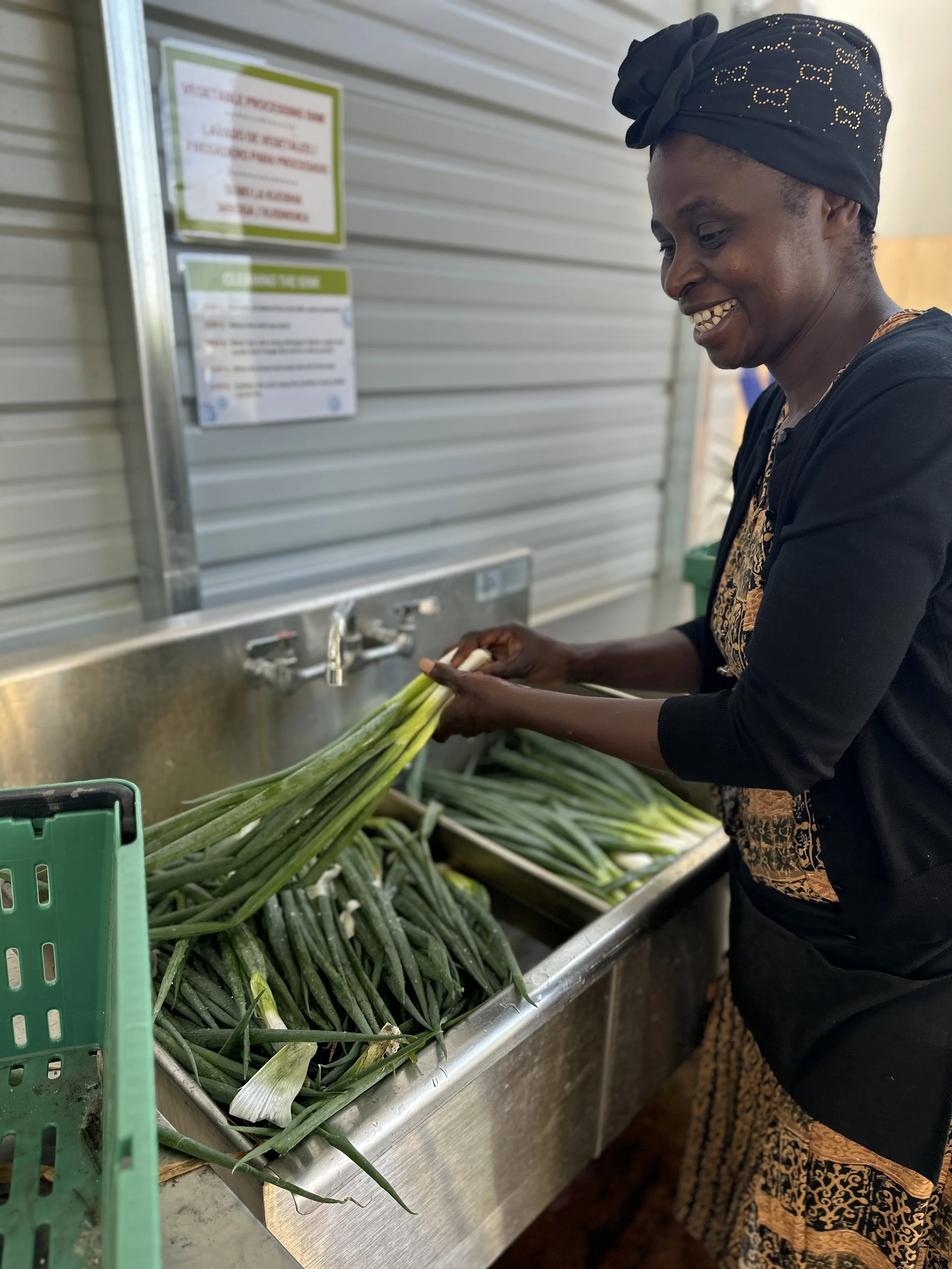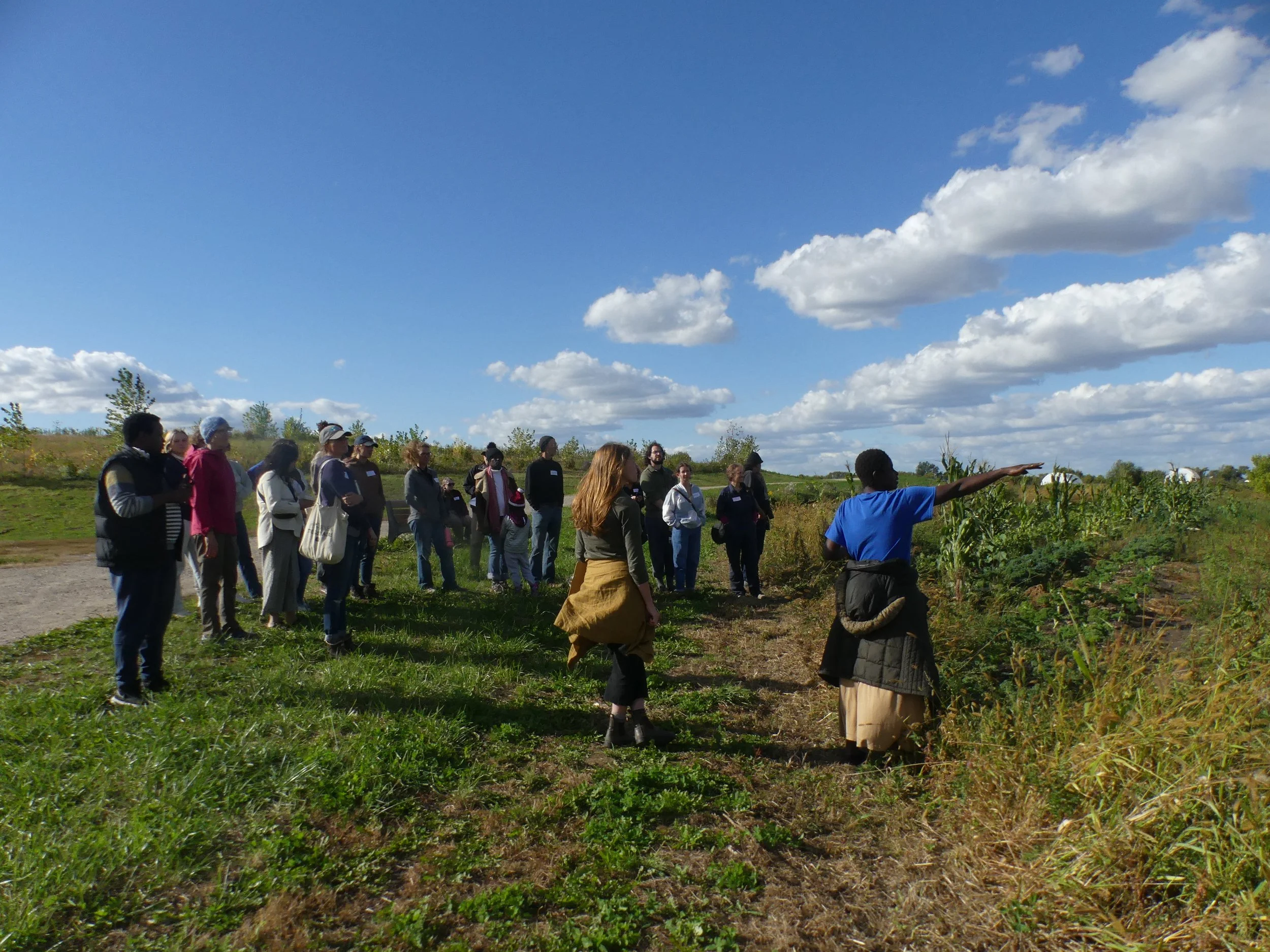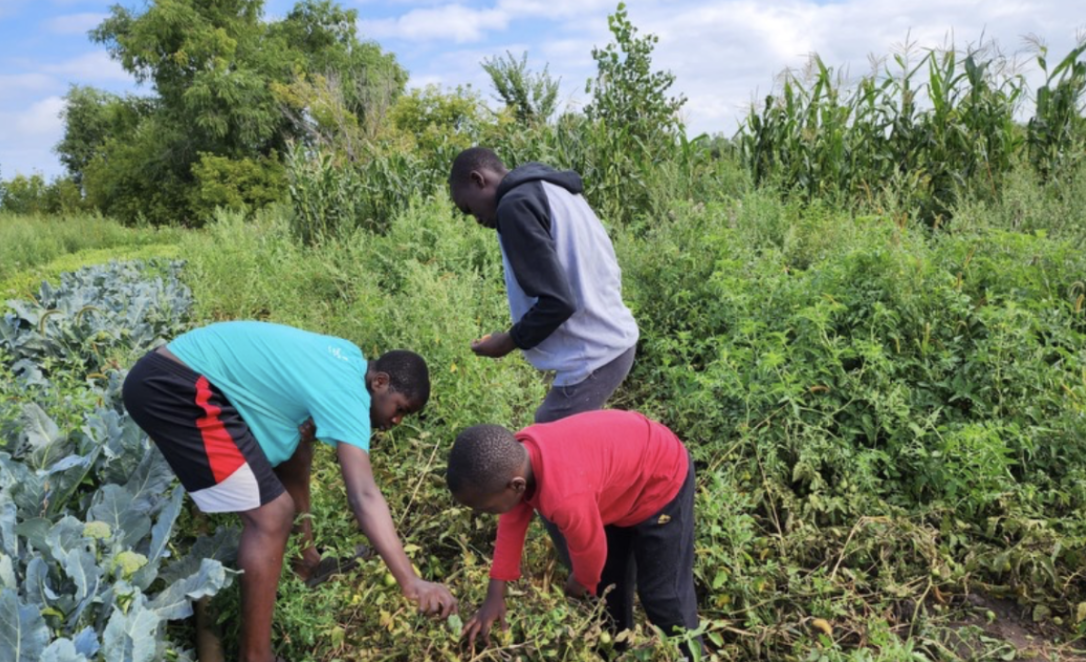Farmer Highlight: Canaan Greens Farm
This blog post was written by Carleton students Linnea Lentfer, Douglas Meeker, and
Henry Weismann as a project for their class “News Stories”. We are grateful for their partnership!
Esther Ondeiki and her husband, Samuel Nyarige, chat while working in their fields
Esther Ondeiki and her family have been working with Sharing Our Roots as vegetable farmers since 2021. Now in their fourth season, Canaan Greens Farm uses organic farming methods to grow produce (beans, melons, leafy greens, peppers, sweet potatoes), as well as traditional Kenyan crops (chinsaga, managu, okra, white corn).
Canaan Greens Farm is now selling at farmers markets in the Twin Cities, to small wholesale accounts, and directly to customers in their community.
In this interview, Esther shares her experience as an organic farmer in Sharing our Roots. We discuss her journey finding the farm, the differences between farming in Kenya, her home country, versus in the U.S, and how Sharing Our Roots has aided in that transition and supported her family.
Esther laughs while cleaning an onion harvest in the wash and pack shed (July 2023)
How did you end up at Sharing Our Roots?
My farming in the U.S. started way back in 2018. When I came to the U.S. in 2017, I found some people from a community farming in small community gardens. I tried to get one but it was not easy. I only just got one. And I discovered they were using a lot of chemicals. Because those plots are small, they have to use a lot of artificial fertilizer and chemicals for them to get enough produce. I didn't like that, so I decided I had to do it my way. So I looked for a bigger space.
It was not easy to get. I found it not through Sharing Our Roots but another farm. The owner is called Bill. It's six minutes from Sharing Our Roots. I farmed there for one year. Then I came to know Sharing our Roots through Lina. She's nicknamed Mama Tshutshu.
Esther showcases her farming field to a group of visitors at the Sharing Our Roots Farm (2022)
You said that was the beginning of farming in the U. S. What are some of the differences between farming here versus farming in Kenya? What was that transition like?
In Kenya, the weather is okay. It's rainy throughout the year. But in the U.S., the weather is extreme. There are some months that you cannot farm and there are some months you can. It's very hot or very cold. In my country, if I want to plant some vegetables I don't need to preserve them for future use because they are there all the time. They are fresh. We harvest from the garden and we eat. But here I have to harvest and I have to stock a lot. It's done within a very short time and it's intense. It's somehow different, but almost the same. And there are times you can use some equipment, but mainly in Kenya we use hoes to weed.
What is it like to be part of the Commons Cohort [the collaborative, communal group of farmers that farm at SOR]? How do farmers engage with or share with each other? How does Sharing Our Roots support the local farming community?
Being in this cohort has been a very pleasant experience for me. I've learned a lot. I've shared with different kinds of people, different groups. It has helped me learn some things that I didn't know. They've learned from me too—they've learned from my experience and I've learned from their experience.
Sharing Our Roots was the right place for me because they practice organic farming. Every time I'm delivering or selling my produce to somebody, to my community members or whoever I might find, I ask myself what I’m really giving. Is it really going to improve this person's health? I only want produce that is organically planted. As much as the seeds or the seedlings may be expensive, I feel it's worth it.
Esther’s sons and another child in the Commons Cohort in the fields at Sharing our Roots.
What vegetables have you brought from Kenya or from your previous farming experience?
We have what we call kunde in our country. Those are cowpeas. There's also nightshade, which we call managu in our country’s language [Swahili]. Then we have a spider flower vegetable called saga. I think those are all new here [in the U.S.]. People here have come to really like spider flower. It's good for a mother who has given birth. Very nutritious. As for the cowpeas, middle aged men are the ones who really love it. They love the smell and then they buy it. Even people here have come to love those more nutritious vegetables.
As a 501(c)3 non-profit, Sharing Our Roots relies on community donations to fund our work providing immigrant, BIPOC, and LGBTQ+ farmers with essential support. If you are able and inspired, please join us in our work to heal our lands and prepare emerging farmers by contributing a single-time or recurring donation.
You can donate directly to support programs like this that benefit our local farmers by selecting the “Commons Cohort” drop-down on the donation portal. We are proud to be community-supported by donations of all amounts.
Thank you!





